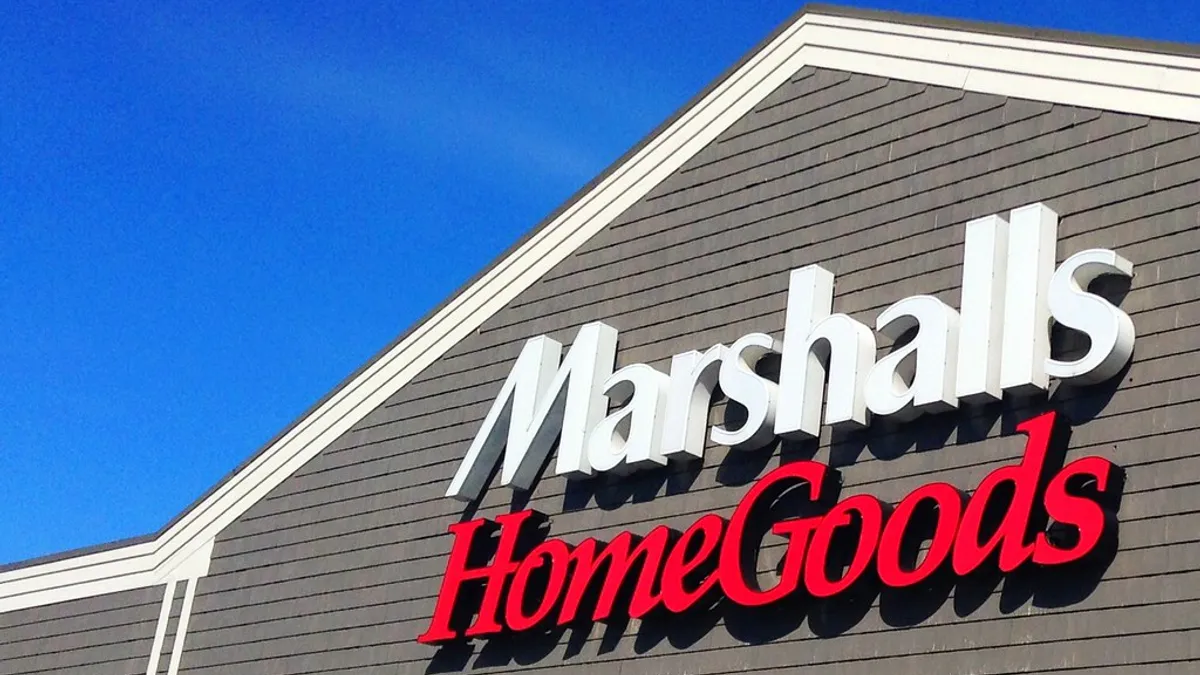Dive Brief:
- TJX Cos, which runs more than 4,900 stores spanning nine countries, could expand its global fleet by 1,300 or more additional locations, CEO Ernie Herrman told analysts on Wednesday.
- This year alone, the off-price retailer plans about 141 net new locations, expanding its footprint to nearly 5,100 and reflecting growth of about 3%, Chief Financial Officer John Klinger said in February. Also, about 480 stores will be remodeled and about 40 will be relocated, he said.
- In the U.S. this year, plans are to add 45 net new Marmaxx locations (T.J. Maxx and Marshalls), 40 HomeGoods locations and 26 Sierra locations. Outside the U.S., plans are to add 10 stores in Canada, 15 in Europe and five in Australia, Klinger said.
Dive Insight:
If tens of thousands of stores close in the next five years as some analysts foresee, they’re unlikely to be off-price stores nor, specifically, stores run by TJX’s banners. In fact, the company has potential for growth, despite already being, according to Bank of America analysts, the world’s largest off-price retailer.
“Longer term, we see the potential for global square footage growth across multiple concepts,” Bank of America analysts Lorraine Hutchinson and Melanie Nuñez said Thursday.
There are various reasons for TJX’s capacity to expand its global fleet, including imminent department store closures, most notably Macy’s. In the U.S. and Canada, as department stores close, especially in areas where it doesn’t already run stores, the company sees opportunity to expand, Klinger said in February.
“One of the things that's happening with all the store closures is the importance to the vendor community keeps rising for our merchants amidst less brick-and-mortar competition,” Herrman said on the February call.
Jefferies analysts led by Corey Tarlowe said they “believe Home and International expansion represent unique growth opportunities for TJX,” according to a client note Wednesday. Similarly, UBS analysts led by Jay Sole also see “big potential” for store growth at TJX’s newer banners like Sierra and HomeSense and within its European footprint. Moreover, UBS sees e-commerce growth slowing over the next two years, boosting the opportunity for brick and mortar.
“We are convinced that significant market share opportunities remain across the U.S., Canada, Europe and Australia,” Herrman said Wednesday. “Over the long term, we see potential to further expand our store footprint by at least another 1,300-plus stores with our current retail banners in our existing countries alone.”















